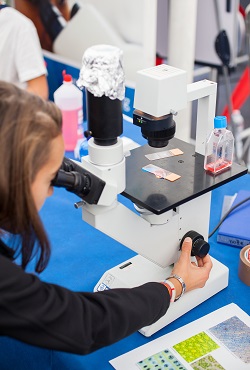Democratising and enhancing research with citizen scientists

Related topics
Innovation Research Infrastructures Society Social Science & Humanities European Research infrastructures, incl. e-infrastructures Science with and for Society Austria Portugal Spain e-infrastructures Brazildate: 04/11/2015
Project: Society as infrastructure for e-science ...
acronym: SOCIENTIZE
See also: CORDIS
Involving partners from Brazil, Spain, Austria and Portugal, the Socientize project focuses on developing citizen science far beyond the simple dissemination of scientific results. Instead, Socientize takes a proactive approach to engaging citizens, students and amateur scientists in scientific research, from helping them supply their knowledge, time and resources for hands-on collaboration in projects and experiments to supporting policymaking and helping define the research agenda.
“Citizen science encompasses a wide range of activities carried out by several actors at multiple levels,” the Socientize team explains, from massive yet occasional virtual interactions on a global scale to small but regular, proactive and continuous involvement in local environments.
“There is no single definition of citizen science but rather a series of definitions that reveal the dynamics of this research approach, which is continually evolving and implies new collaborative activities and shared objectives,” the team says.
Experiments carried out under the umbrella of Socientize exemplify the advantages of this approach in which citizens are not just passive subjects of research experiments but active, engaged volunteers.
In an initiative called Cell Spotting, for example, volunteers were recruited to help fight cancer online by analysing microscope images of drug interactions with cancer cells. This form of crowd-sourced human image analysis saves researchers time, reduces costs and, by having the same image analysed by many people, offers a high degree of accuracy.
In another experiment, MindPaths, a game was developed in which participants were asked to connect words based on their perceived relationship, providing important input to improve and refine neurolinguistic and semantic analysis systems. And in the Collective Music Experiment, the Socientize team brought citizen science to the Sónar music festival in Spain to study the ways in which large groups of individuals produce creative and artistic results collectively.
Shaping the research agenda
“These experiments and others demonstrate that citizen science can play a relevant role in many types of research and innovation projects, as well as in science communication and education,” explains Fermín Serrano, the Socientize project coordinator at the Universidad de Zaragoza in Spain. “They serve to highlight the many advantages of having non-scientists involved in research, whether by performing tasks to support researchers or providing resources for experiments such as computational resources.”
The knowledge and experience gained over two years in the Socientize project has fed into a White Paper on Citizen Science in Europe to guide policymakers at the European, national and regional level on establishing future strategies for civic engagement in scientific research.
“The approach defined in the paper has been positively received by different stakeholders including educators, researchers and policymakers due to its community-based and inclusive nature. It is being used to shape several initiatives such as future calls under the European Commission’s Horizon 2020 programme,” Serrano says.
The Socientize partners themselves are continuing to build on the project’s results, including through the Ibercivis Foundation, a spin-off from the Universidad de Zaragoza to support international citizen science of which Serrano is executive director.
“The concept of citizen science is definitely spreading more widely, and Socientize has been an important part of achieving that,” Serrano says. “Over the coming years, citizens will be playing an expanded role in scientific research and will contribute more actively to defining the research agenda, effectively helping to democratise science.”
Related article in Horizon Magazine
